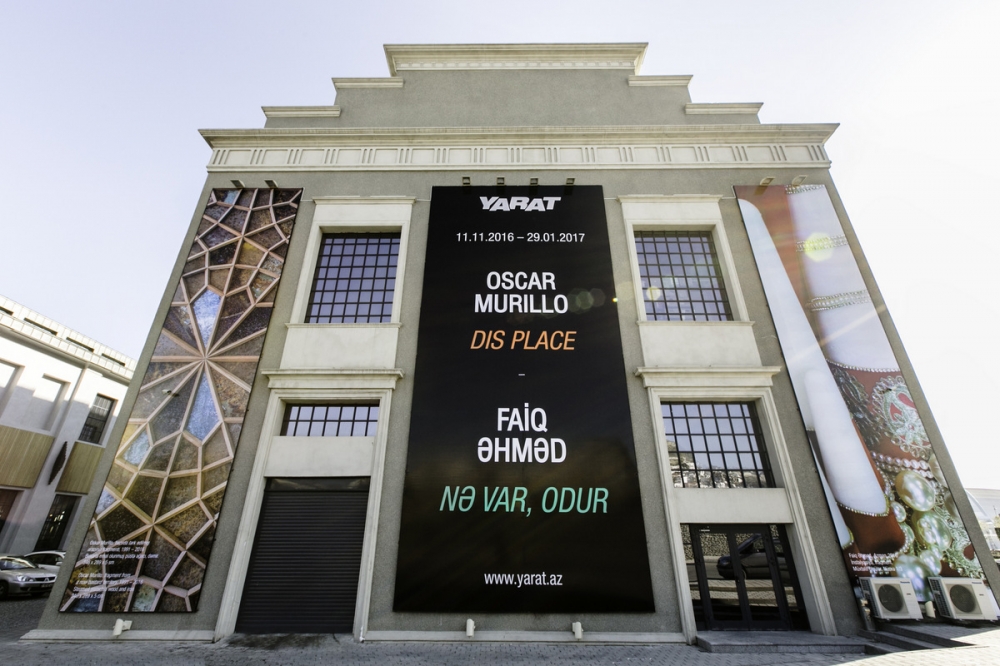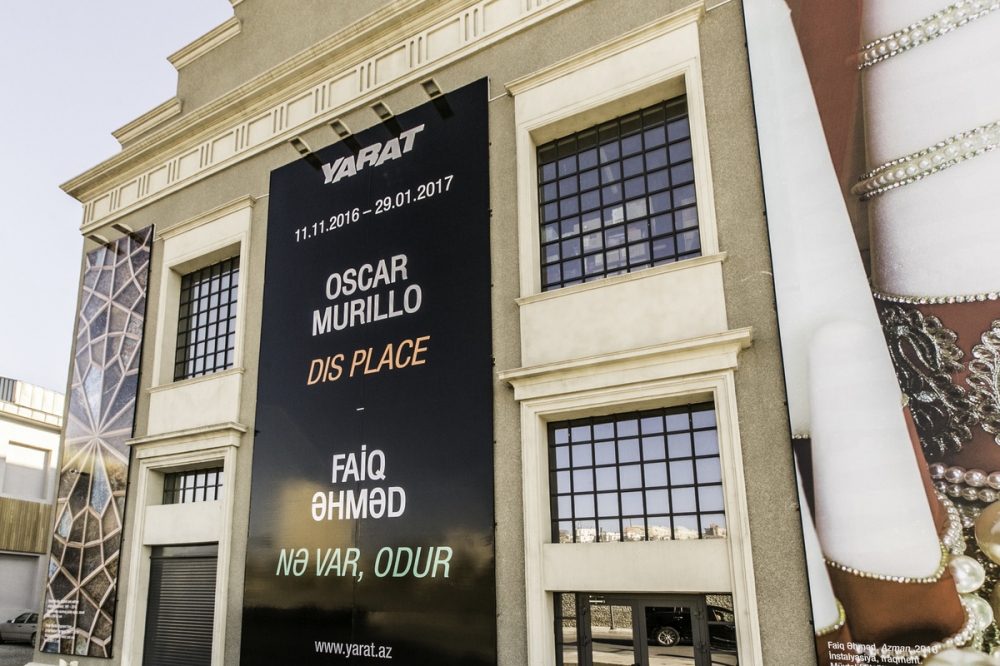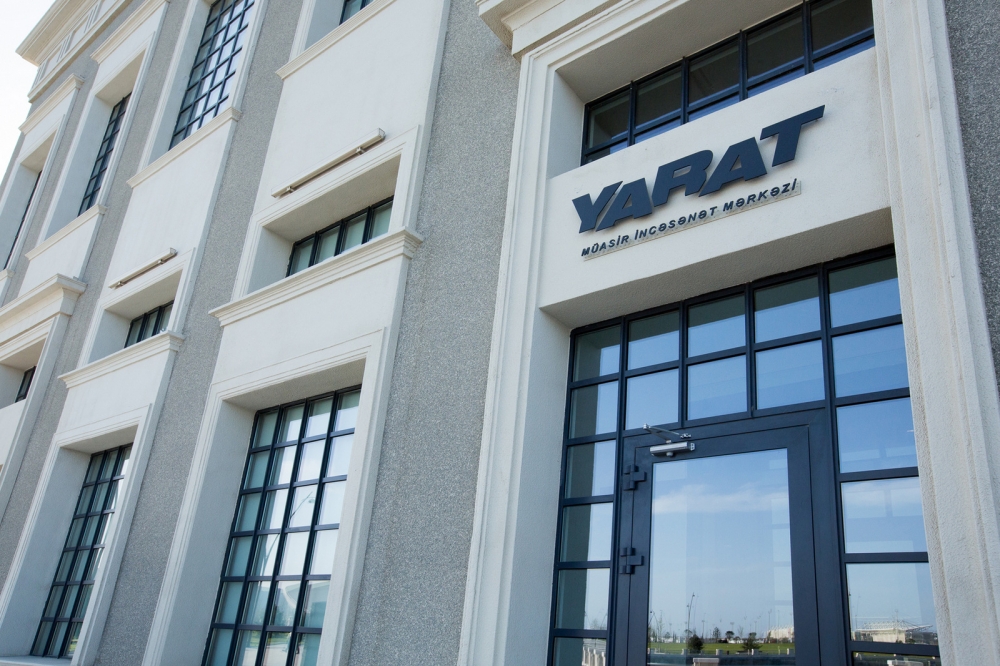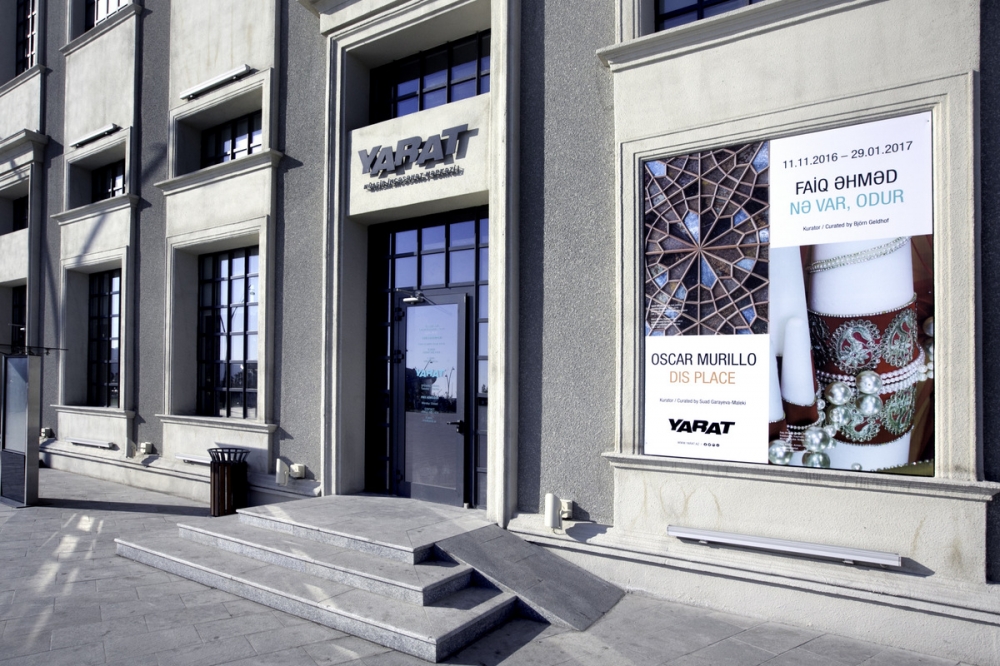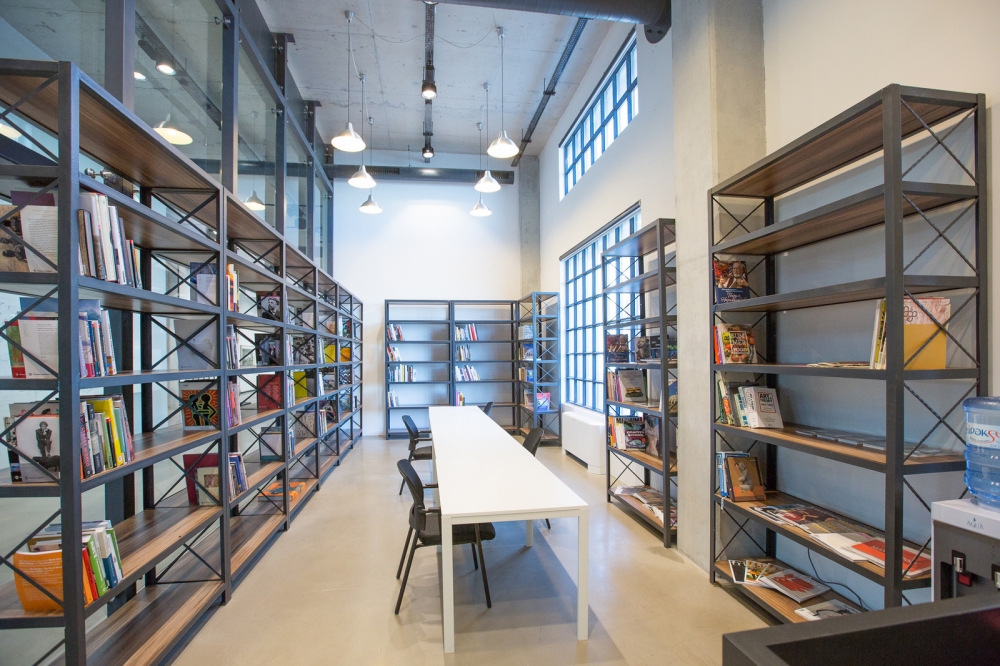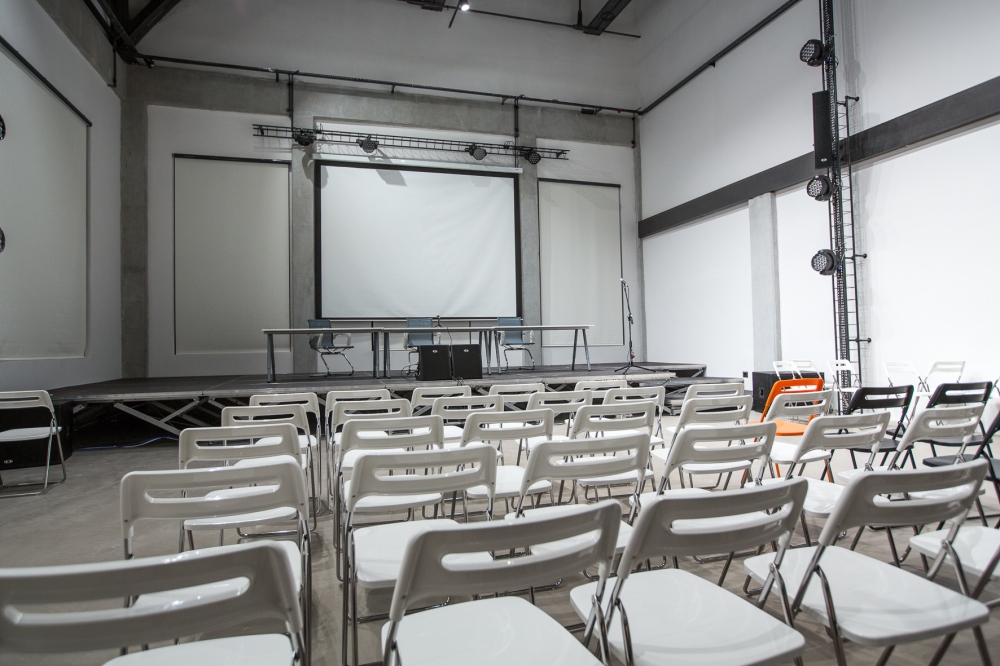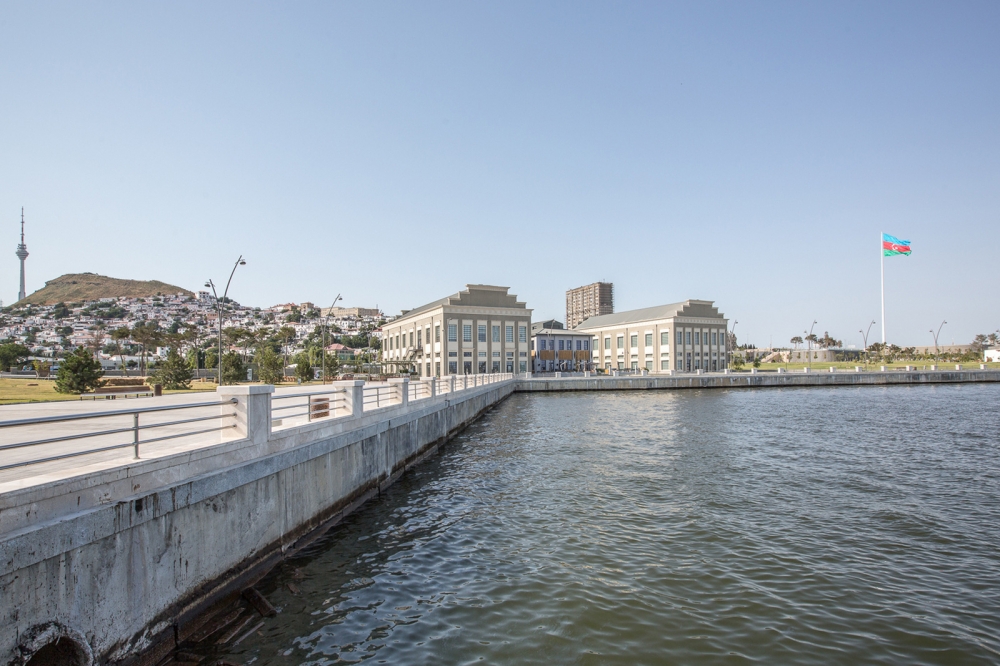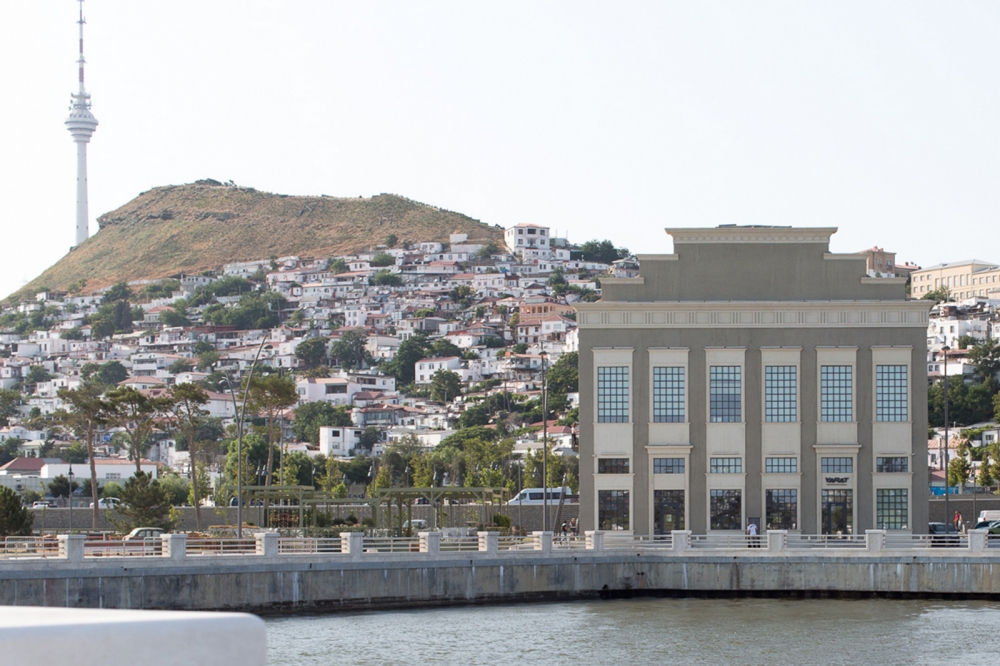YARAT CENTRE
YARAT Contemporary Art Space the not-for-profit contemporary art organisation, opened a new centre for contemporary art in March 2015 in Baku, Azerbaijan. YARAT Contemporary Art Centre is the first permanent space for YARAT. It is housed in a converted Soviet-era naval building overlooking the Caspian Sea which acted as a maintenance base for navy ships in the 1960s. The conversion has created a 2,000m2 exhibition space spread over two floors. The building will showcase temporary exhibitions by leading international artists, highlighting emerging movements and new commissions, as well as housing YARAT Collection displays and a new library. The auditorium provides a dedicated space for screenings, performances and YARAT’s educational events. An organic café completes the centre by providing a space for informal discussions and gatherings. The YARAT Contemporary Art Centre is conceived as a dedicated hub for contemporary art and art education not only for Azerbaijan, but the wider region as a whole.
Aida Mahmudova, YARAT’s Founder and Creative Director, says “I am delighted we’ve reached this milestone in YARAT’s work. This centre gives us even more opportunity to engage with artists, audiences and institutions internationally and to further develop our education programme, which is at the core of our activities. For centuries Baku has been a site for cultural exchange and creativity – our art centre will extend this within a contemporary context".
The YARAT Collection is presented for the first time with the opening of the new centre and focuses on artists from the Caucasus, Central Asia and neighbouring countries. Baku is the perfect common ground for the arts from this region: similarities in religion, language, and a common Soviet past between the various nationalities have been further reinforced by the dramatic socio-economic changes of the last twenty years. Connecting to global markets and influences for the first time in 70 years, artists were among the first to react and subsequently negotiate and reflect this transition in their works.
The inaugural exhibition of the collection, entitled 'Making Histories', brings together seminal works across varied media that are historically connected to the geo-culture of Azerbaijan and the potent sense of identity catalysed by exposure to radical socio-political changes. Some artists reference the symbolism of ancient traditions, some find nostalgia in transitory moments of the everyday, some question infallibility of existing narratives, while others project quasi-utopian optimism for a better future. Nevertheless, all works shown in this exhibition are explorations into what it means to be alive today and construct, block by block, the new histories of tomorrow.
